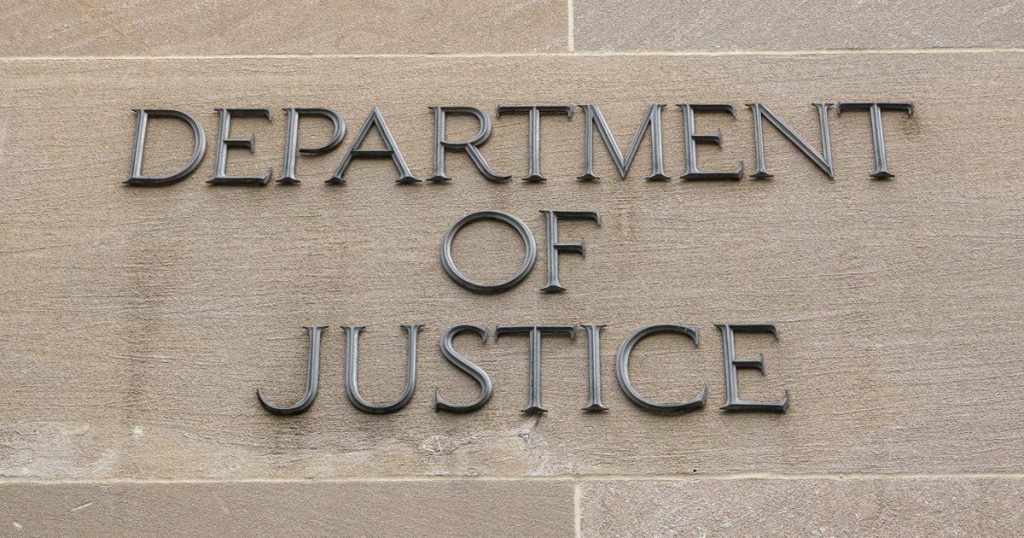In a significant shake-up, the Justice Department has dismissed over 20 officials connected to investigations involving former President Donald Trump and his associates. This latest wave of firings, part of an ongoing purge, targets those who participated in controversial cases overseen by Special Counsel Jack Smith. As the department grapples with these high-profile cases, the scrutiny surrounding the actions of its officials intensifies, leading to concerns regarding the integrity and independence of law enforcement.
| Article Subheadings |
|---|
| 1) Overview of the Justice Department Firings |
| 2) Details of the Terminations and Their Implications |
| 3) The Role of the Weaponization Working Group |
| 4) Insights from Former Officials |
| 5) Broader Context of Political Influence and Accountability |
Overview of the Justice Department Firings
The recent firings at the Justice Department highlight a systematic effort to reshape its personnel and strategies, particularly those tied to investigations involving President Trump. Reports indicate that at least 35 employees associated with Special Counsel Jack Smith‘s investigations have lost their jobs. These investigations focus on Trump’s alleged mishandling of classified documents and attempts to overturn the 2020 election results. The dismissals are viewed as part of a broader attempt to assert control over the Justice Department, particularly as we approach a contentious political landscape leading up to the next presidential election.
Details of the Terminations and Their Implications
The firings reportedly include a range of staff members, such as paralegals, administrative personnel, and prosecutors across various jurisdictions. Two significant terminations occurred in North Carolina and Florida, indicating the widespread impact of the purge. Observers have noted the potential implications these actions could have on ongoing investigations, not only affecting morale but also unsettling public trust in the Justice Department’s independence. The fear is that such mass dismissals could lead to a chilling effect on law enforcement and could hinder future investigations into political figures, including Trump, who is facing multiple legal challenges.
The Role of the Weaponization Working Group
To justify these firings, Attorney General Pam Bondi established the “weaponization working group,” aimed at reviewing enforcement policies under the Biden administration. This group assesses cases against Trump pursued by Special Counsel Smith and seeks to scrutinize the legal actions taken against the rioters from January 6, 2021. The group is also looking into state-level investigations against Trump, including the “hush money” trial in New York and other civil enforcement actions. By identifying those officials involved in these investigations, Bondi’s directive seems to target any perceived misconduct, blurring the lines between accountability and political retribution.
Insights from Former Officials
One of the notable individuals recently dismissed is Patty Hartman, a former public affairs specialist who shared her concerns regarding the firings. Hartman provided valuable context, noting that previously, there were clear boundaries between the executive branch and the Justice Department, aimed at preserving judicial independence. Now, those lines appear to be significantly blurred, undermining the department’s credibility and operational integrity. The sentiment expressed by former officials suggests a broader culture of fear within the agency, as employees worry about potential repercussions for their work on politically sensitive cases.
Broader Context of Political Influence and Accountability
As the Justice Department embarks on this aggressive restructuring, many speculate about the long-term effects on governance and accountability. The dismissals coincide with heightened political tensions, where Trump’s allies downplay the severity of the January 6th Capitol riots, labeling convicted rioters as “political prisoners.” Further complicating this landscape is the mass pardon granted to many involved in the riots, which effectively ended subsequent prosecutions. Such actions challenge the foundational principles of justice and accountability, raising essential questions about the separation of powers and political influence over law enforcement.
| No. | Key Points |
|---|---|
| 1 | The Justice Department has dismissed over 20 officials linked to investigations involving former President Trump. |
| 2 | The dismissals include paralegals, finance staff, and two prosecutors, affecting ongoing investigations. |
| 3 | Attorney General Pam Bondi established the “weaponization working group” to review enforcement policies. |
| 4 | Former officials express concerns over the loss of separation between the Justice Department and political influences. |
| 5 | The context of these firings raises critical questions about accountability and political influence in law enforcement. |
Summary
The ongoing purge of Justice Department officials reveals a troubling trend in which political influence appears to reshape the agency’s operations. As more officials face termination in connection with high-profile investigations into former President Trump, the integrity of the Justice Department is called into question. The establishment of the weaponization working group further complicates this scenario, as it blurs the lines of accountability in a politically charged environment. It remains to be seen how these developments will impact public trust in the justice system moving forward.
Frequently Asked Questions
Question: What triggered the firings at the Justice Department?
The recent firings were triggered by a systematic effort to reshape the Justice Department and address the perceived misconduct of officials involved in investigations concerning former President Trump.
Question: Who was part of the weaponization working group?
The weaponization working group was established by Attorney General Pam Bondi and is responsible for reviewing enforcement policies and examining the conduct of the Justice Department under the Biden administration.
Question: What are the implications of these terminations for ongoing investigations?
These terminations could have significant implications for ongoing investigations, potentially impacting staff morale and public trust in the impartiality of legal proceedings related to politically sensitive cases.


